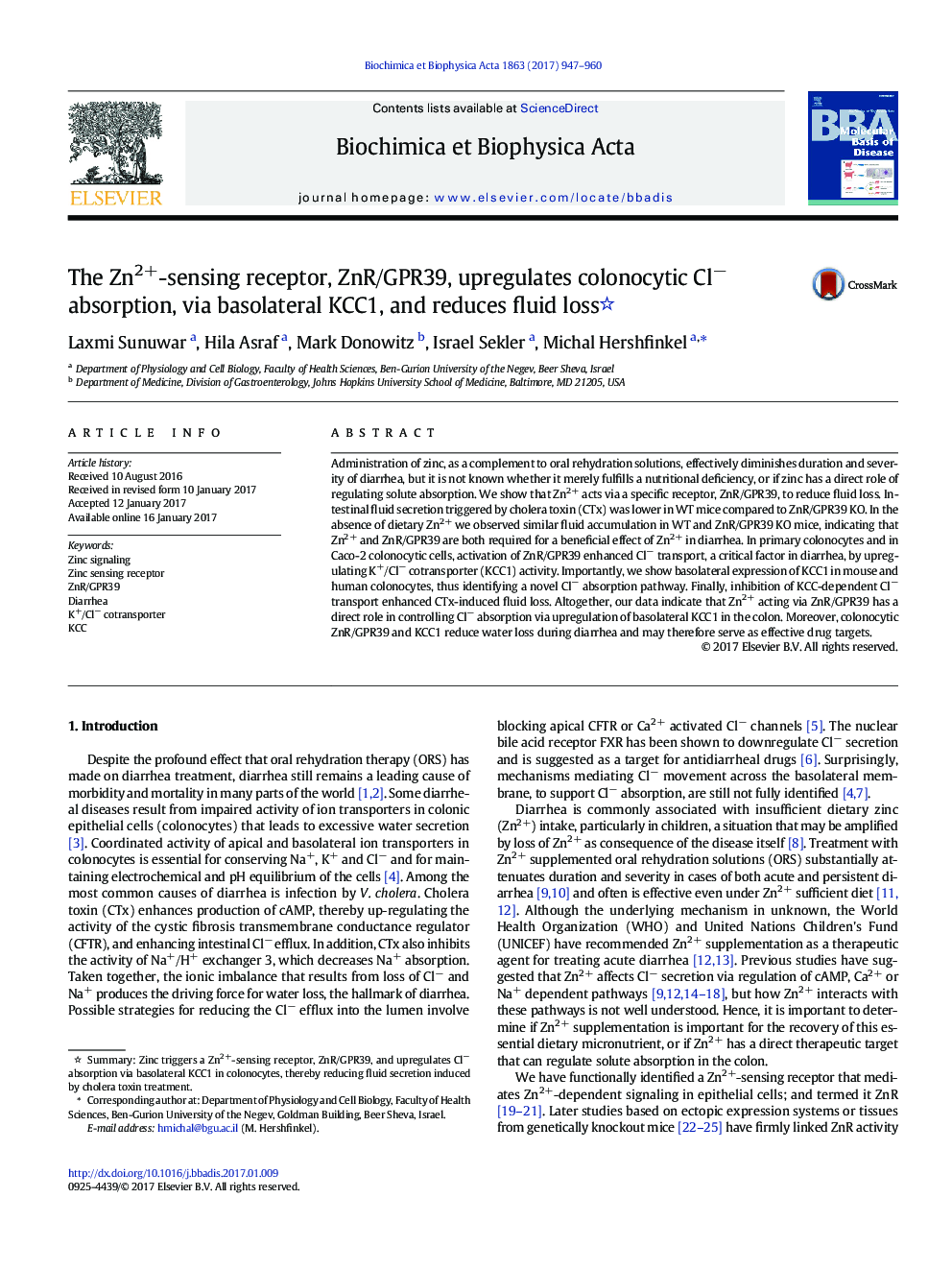| Article ID | Journal | Published Year | Pages | File Type |
|---|---|---|---|---|
| 5500972 | Biochimica et Biophysica Acta (BBA) - Molecular Basis of Disease | 2017 | 14 Pages |
Abstract
Administration of zinc, as a complement to oral rehydration solutions, effectively diminishes duration and severity of diarrhea, but it is not known whether it merely fulfills a nutritional deficiency, or if zinc has a direct role of regulating solute absorption. We show that Zn2+ acts via a specific receptor, ZnR/GPR39, to reduce fluid loss. Intestinal fluid secretion triggered by cholera toxin (CTx) was lower in WT mice compared to ZnR/GPR39 KO. In the absence of dietary Zn2+ we observed similar fluid accumulation in WT and ZnR/GPR39 KO mice, indicating that Zn2+ and ZnR/GPR39 are both required for a beneficial effect of Zn2+ in diarrhea. In primary colonocytes and in Caco-2 colonocytic cells, activation of ZnR/GPR39 enhanced Clâ transport, a critical factor in diarrhea, by upregulating K+/Clâ cotransporter (KCC1) activity. Importantly, we show basolateral expression of KCC1 in mouse and human colonocytes, thus identifying a novel Clâ absorption pathway. Finally, inhibition of KCC-dependent Clâ transport enhanced CTx-induced fluid loss. Altogether, our data indicate that Zn2+ acting via ZnR/GPR39 has a direct role in controlling Clâ absorption via upregulation of basolateral KCC1 in the colon. Moreover, colonocytic ZnR/GPR39 and KCC1 reduce water loss during diarrhea and may therefore serve as effective drug targets.
Related Topics
Life Sciences
Biochemistry, Genetics and Molecular Biology
Ageing
Authors
Laxmi Sunuwar, Hila Asraf, Mark Donowitz, Israel Sekler, Michal Hershfinkel,
